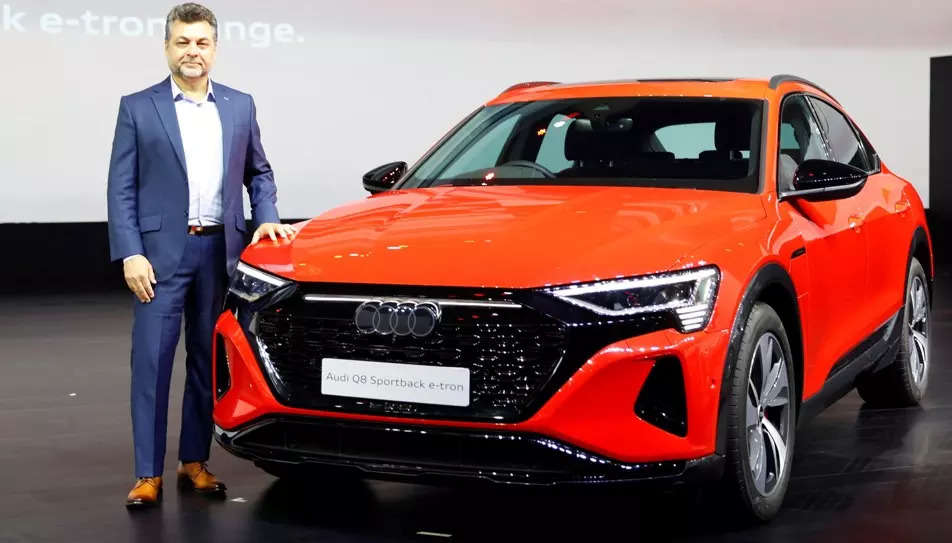
New Delhi: Luxury car sales witnessed an impressive surge in 2023 as the highest selling year for most of the luxury car manufacturers in India. For 2024, the stage is set for a potentially groundbreaking year, again. In conversation with ETAuto, Balbir Singh Dhillon, Audi India Head, reveals that the company experienced a staggering 33% surge in sales in the previous financial year, with 7,027 cars finding discerning buyers.
However, the current calendar year has its share of trials in the form of supply chain disruptions that momentarily held back the company’s momentum. Nevertheless, Dhillon remains cautiously optimistic, asserting that the industry is poised for an approximate 10% growth trajectory.

Luxury Auto segment heading for an all-time high, again?
Dhillon predicts that this year could witness a historic milestone, with luxury car sales surpassing the coveted 50,000 mark for the first time in history. However, he maintains a pragmatic stance, acknowledging the volatile nature of the market and refrains from making long-term predictions. “For individuals, like for our own brand, sometimes things are difficult to predict for the long term. The first quarter wasn’t one of the best quarters for us because we did not have sufficient cars to sell. But hopefully this year the supplies should be reasonably good enough so that we also grow, he remarked.Globally, Audi AG is laying the groundwork for launching close to 20 models in 2024-2025 with the forethought of bringing some of these models to India. While one of Audi’s luxury market nemesis, Mercedes-Benz is foraying into the TEV (Top-end vehicle segment) and planning to sell more cars that cost upwards of INR 1 crore, Audi India hinges its sales growth to more models being available at different price points. “The availability of models increases at different price points, the percentage of sales will already grow,” he added.
Is luxury EV a notable market?
Transitioning to the topic of electric vehicles, Dhillon articulated the company’s unwavering commitment to a fully electric future. “Eventually, we want to be a fully electric car company,” he declared, outlining an ambitious vision for the company’s evolution. “Maybe by the end of this decade we are able to reach close to 50%, maybe a little bit less, a little bit more. So we are moving in that direction and that’s how our future product lineup will also be, he added.
Despite acknowledging challenges such as charging infrastructure and initial purchase costs, Dhillon remained optimistic about the gradual shift towards EV adoption, citing the introduction of new models at varied price points as a catalyst for growth.
“Last year in the luxury space, the penetration was about 6% (of luxury EVs). I hope that will only increase going forward. The cost of ownership is still high, but the cost of running these cars is obviously much more efficient. Cost of maintenance of these cars is much more efficient, he said.”
Discussing the government initiatives aimed at promoting EVs, Dhillon expressed cautious optimism, stressing the need for thorough evaluation. “Any policy which the government brings in to improve the penetration of EVs is always welcome,” he remarked, emphasizing the importance of collaborative efforts in driving sustainable automotive solutions. “We still are importing the cars we are not making in India, and they are still coming at the highest possible import duties.”

















